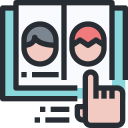Chosen Theme: Questions to Ask When Hiring a Tutor for Professional Skills
Today’s focus is Questions to Ask When Hiring a Tutor for Professional Skills. Ask sharper questions, get better coaching, grow faster. A quick story: Maya once hired the first available tutor—and plateaued. The second time, she interviewed like a pro, clarified outcomes, and doubled her confidence in a month. Read on, borrow the questions, and share your favorites in the comments. Subscribe to receive a printable checklist of must-ask questions.

Verify Expertise Without the Guesswork
Which certifications and projects prove your mastery?
Ask the tutor to connect credentials to outcomes, not just letters after a name. Request one or two recent projects, the exact role they played, and measurable results that resemble the goals you’re chasing.
How recent is your hands-on industry experience?
Skills evolve quickly. Invite the tutor to describe the last time they used these skills in a live environment, what changed recently, and how they keep their techniques fresh and relevant to current industry realities.
Can I see a portfolio aligned to my goals?
Portfolios de-risk your decision. Ask for anonymized artifacts, before-and-after samples, or student deliverables demonstrating progress. If examples mirror your intended outcomes, you’re closer to a confident yes. Subscribe for our portfolio-review checklist.
How will you diagnose my skill gaps?
Look for a thoughtful intake: a short assessment, a work sample review, and a discussion about your role. The best tutors translate diagnostics into a personalized learning plan with milestones and relevant practice.
What balance of practice versus theory will we follow?
Ask for a percentage split, like seventy-thirty hands-on to theory, and examples of exercises you will complete. Practical reps build professional confidence, while just enough theory ensures transferable understanding and long-term retention.
How do you adapt when a concept doesn’t click?
Effective tutors expect detours. Request examples of how they reframe topics, add alternate exercises, or change mediums when confusion shows up. Adaptability is the difference between temporary frustration and true breakthrough learning.

Define Outcomes and Measure Progress
What specific outcomes will we target in 6–8 weeks?
Push for concrete deliverables: a demo project, a completed case study, or a passed assessment. Clear outcomes help you prioritize time, maintain momentum, and communicate progress to your manager or team with confidence.
How will we measure progress each session?
Ask about rubrics, checklists, and quick formative assessments. When feedback is structured and consistent, you always know where you stand and which next action gives the highest return on your learning effort.
What happens if progress stalls?
Plateaus are normal. Request a plan for course corrections: changing practice tasks, revisiting fundamentals, or introducing spaced repetition. A resilient approach prevents discouragement and keeps growth visible even during challenging weeks.
Ensure Role and Industry Relevance
Will you tailor examples to my domain?
Ask for scenarios drawn from your industry’s workflows, constraints, and jargon. When a tutor speaks your context fluently, practice feels authentic, and you immediately recognize how to apply each lesson on the job.
Which tools, versions, and platforms will we use?
Verify alignment with your stack. Specify versions, plugins, or frameworks so there are no surprises. A good tutor confirms compatibility, highlights differences, and teaches you how to adapt across environments without panic.
Do you address standards, compliance, or best practices my field requires?
Whether it’s accessibility, quality frameworks, or documentation norms, ask for coverage. Real professionalism includes the rules that govern safe, ethical, and consistent work, not just the mechanics of getting tasks done.
What feedback cadence can I expect?
Request specifics: live feedback during sessions, written notes within twenty-four hours, and periodic summaries. Reliable cadence keeps you aligned and reduces anxiety, especially when tackling unfamiliar professional skills or fast deadlines.
What homework and artifacts will keep me accountable?
Ask for deliverables: a weekly mini-project, a reflection log, or a skills tracker. Tangible artifacts reveal trends over time and turn practice into evidence you can share with peers or mentors for additional support.
How will you involve managers or mentors if needed?
If appropriate, invite structured touchpoints with stakeholders to align expectations and celebrate progress. Transparency can unlock support, real-world projects, and visibility—all accelerators for mastering professional skills responsibly.
What schedule, time zone, and response times do you support?
Clarify availability windows, holidays, and turnaround for questions. Predictable logistics remove guesswork and help you protect deep work blocks, an underrated advantage when learning while juggling demanding professional responsibilities.
Do you offer a short trial session?
A low-stakes trial reveals chemistry, pacing, and clarity of explanation. Ask to tackle a bite-sized task. If you leave energized and clear-eyed, you’ve likely found a tutor worth committing to long term.
How do you ensure accessibility and inclusion?
Request captions, alternative materials, and flexible formats. Inclusive tutors adapt to different learning preferences and needs, creating a respectful environment where questions are welcomed and growth feels genuinely sustainable for everyone.



